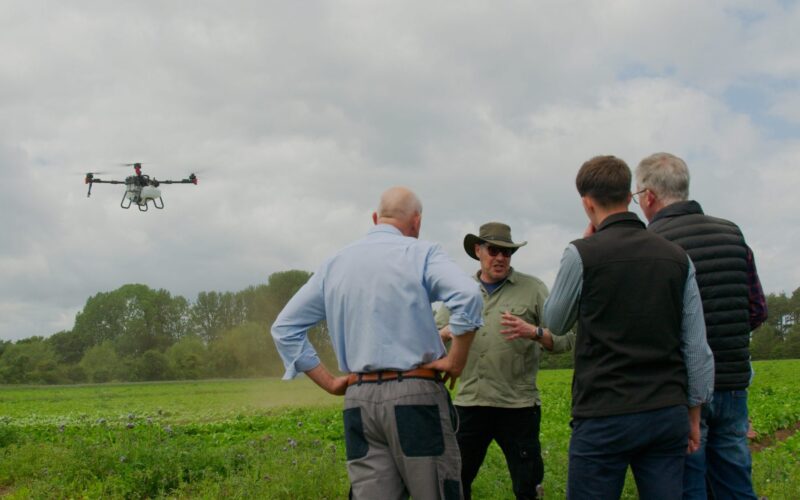M&S has announced the initial results of its first retailer-led ‘autonomous field’ trial, which will result in the sale of lower-carbon parsnips later this year. M&S is the first retailer to both cultivate and sell a lower-carbon vegetable following such a trial.
In collaboration with long-term supplier Huntapac, the first fully autonomously farmed parsnips will be available in select M&S stores this November. The project integrates the latest technology to significantly reduce the environmental impact of farming. The process involves two robots for tasks such as bed forming, planting, and weeding, as well as drones that monitor and maintain crop health. Scientific testing on soil health and carbon impact is also part of the approach. Similar to the transition from horse and plough to mechanical tractors, these technologies represent the future of farming, helping farmers while creating highly skilled jobs and attracting new talent to the industry.
The trial employs a minimum tillage approach to retain carbon in the soil, uses a green fertiliser, and operates technology that consumes far less diesel than traditional tractors, reducing carbon emissions. The green fertiliser, produced with a lower carbon footprint, also converts nitrogen dioxide from the air into nitrogen that plants can use for photosynthesis. Early data shows a 46% reduction in carbon emissions compared to conventional farming methods.
In addition to cutting carbon emissions, the new technology offers other advantages, such as improved crop quality and higher yields. AI is used to monitor and optimize crop health, while autonomous technology mitigates the effects of adverse weather conditions. For instance, after England experienced its wettest six months on record this March, the autonomous robot was able to plant the field—something a traditional tractor couldn’t have done. This led to a 16% increase in grade-one parsnips compared to Huntapac’s other fields, reducing waste and boosting yield.
The trial also incorporates elements from M&S’ Farming with Nature programme to enhance biodiversity, including wildflower borders and AgriSound technology, which uses specialised listening devices to monitor pollinator activity.
The parsnips, grown in Yorkshire, will be available in select M&S stores in November.
This project is the first M&S Food initiative funded by the M&S Plan A Net Zero Accelerator Fund, launched to support innovative projects that help achieve the retailer’s goal of becoming a net-zero business across its entire supply chain by 2040.
Andrew Clappen, Technical Director at M&S Food said, “Innovation is at the heart of M&S Food and our Plan A Accelerator Fund offers us the opportunity to tap into the entrepreneurial spirit of our suppliers. Projects like this help us move towards being a Net Zero business across all our operations and entire supply chain by 2040, whilst focussing on the quality of produce that M&S is famous for.”
He added, “Agriculture is one of our biggest contributors to emissions, so it’s important that we find new lower impact farming methods. Trialling new ways to support our Plan A roadmap to Net Zero is an important step on the journey and this project has helped deliver more parsnips at M&S quality, a carbon reduction and brings together new technologies which if adopted more widely would create more highly skilled jobs and attract new talent into the sector.”
Stephen Shields, Technical & Sustainability Director at Huntapac said, “Our 40-year relationship with M&S has gone from strength to strength and we couldn’t have done this project without the Plan A Accelerator Fund. Not only are we seeing a reduction of the carbon impact but more parsnips at higher quality, due to us being able to plant the seeds despite bad weather earlier this year. This would have a fantastic impact on our business at scale and we’re aiming to deliver multiple fields farmed this way for next season.”





















